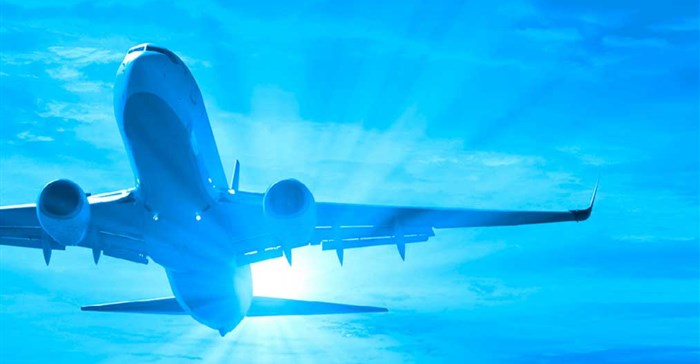
Top stories


Marketing & MediaBehind the campaign: Reframing fairness in ride-hailing: The inDrive success story
inDrive 4 hours




More news

















ICAO is a United Nations specialised agency tasked with managing civil aviation matters across the world in support of a safe, efficient, secure, economically sustainable, and environmentally responsible civil aviation sector.
ICAO Member States, which includes South Africa, are expected to conform with ICAO Standards and Recommended Practices in order to ensure that their local civil aviation operations and regulations conform to global norms, which in turn enables the global aviation network to operate safely and reliably.
The organisation regularly performs mandatory audits of member states' safety oversight systems through its Universal Safety Oversight Audit Programme (USOAP). Its USOAP audits focus on a state's capability in providing safety oversight by assessing whether the state has effectively and consistently implemented the critical elements of a safety oversight system, which enable the state to ensure the implementation of ICAO's safety-related standards and recommended practices and associated procedures and guidance material.
The audit team arrived in the country over the weekend and was officially welcomed by the minister of transport, Joe Maswanganyi at an event which was also attended by CEOs of other associated state agencies as well as captains of the aviation industry that included CEOs of some of the local airlines and charter companies, and representatives of various aviation entities.
In his opening remarks, Maswanganyi pointed out that even though South Africa is regarded as a developing country, its aviation infrastructure matches that of most of the developed countries. “This is not only in reference to aviation technology but also in the way we conduct business in this sector.”
Maswanganyi applauded South Africa’s impeccable zero fatality rate in relation to scheduled commercial operations, i.e. airlines, and urged those engaged in private flying to work hard to improve safety levels. “Regardless, I am comforted by the fact that statistics indicate that things have been improving lately, particularly in the last four years. The number of accidents has been declining since the 2013/14 financial year when 144 accidents were reported. Four years later, the number has dropped by a massive 50%, i.e. to 72 aircraft accidents during the 2016/17 financial year.”
The Minister credited the decline in aircraft accidents to various safety promotion interventions at a “State level, coupled with initiatives by the SACAA, and industry”.
He urged South Africa’s aviation agencies to continue to participate in international forums in order to learn from and impart skills among peers across the continent and the world. “South Africa’s participation in these forums has not only provided us with the opportunity to contribute towards relevant discourse on vital aspects of aviation, but it also places our representatives at the cutting-edge of civil aviation development. It is this desire to amass knowledge that makes us excited to be part of this ICAO audit. Whilst others may regard audits like these as unpleasant and petrifying exercises, we view this engagement as an opportunity to pause and reflect objectively on our aviation safety and security endeavours.”
He urged the South African audit task team, which comprise different role players to cooperate with the auditors and represent the country in the best form they can. “You are representing the hopes of over 55 million South Africans and 33,000 aviation license-holders.”
According to Poppy Khoza, who heads the SACAA as director of civil aviation (CEO), South Africa’s preparations for this audit started as far back as 2013 when South Africa was subjected to a similar audit. “A lot of work has been done behind the scenes, and as such, we hope not to attract any adverse findings following this audit.”
Khoza cited the SACAA’s recent accolades in relation to its performance as a sign that the regulator and the country are capable of maintaining an adequate safety oversight system. “In our view, any independent acknowledgement of good governance and exceptional performance by the Civil Aviation Authority is welcome because it automatically gives assurance to those that use air transport that civil aviation safety and security oversight is indeed managed properly. Our performance as the Regulator is intertwined with the country’s levels of aviation safety and security, and it mirrors how we discharge our mandate. It is thus important that we keep excelling in all aspects of our business. We cannot be a regulator that struggles with compliance with local and international requirements. Moreover, we cannot expect licence-holders to be compliant when we are not.”
Khoza explained that whilst it is impossible to predict the outcome of the ICAO audit, her wish for the country is to avoid any pronouncement of an ICAO significant safety concern, which in simper auditing terms is a qualified opinion. “We will be delighted, if we do not attract any adverse findings, and most importantly if we could help improve on South Africa’s current rating, which is currently at 84% and therefore still significantly higher than the world average of 60%,” Khoza concluded.